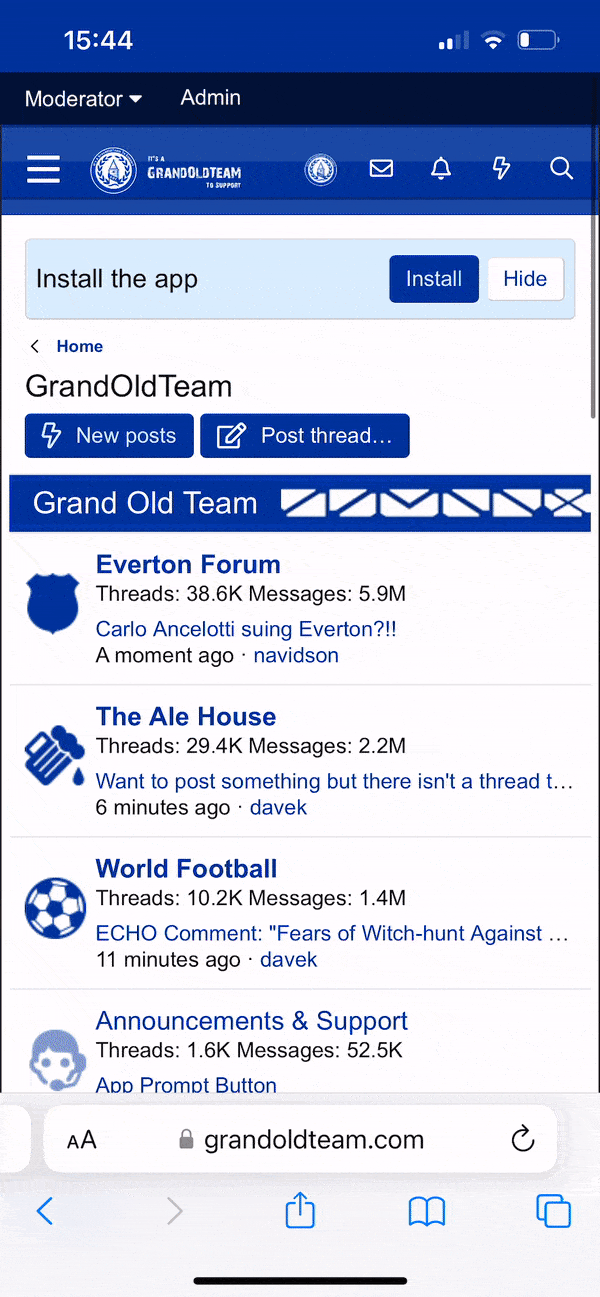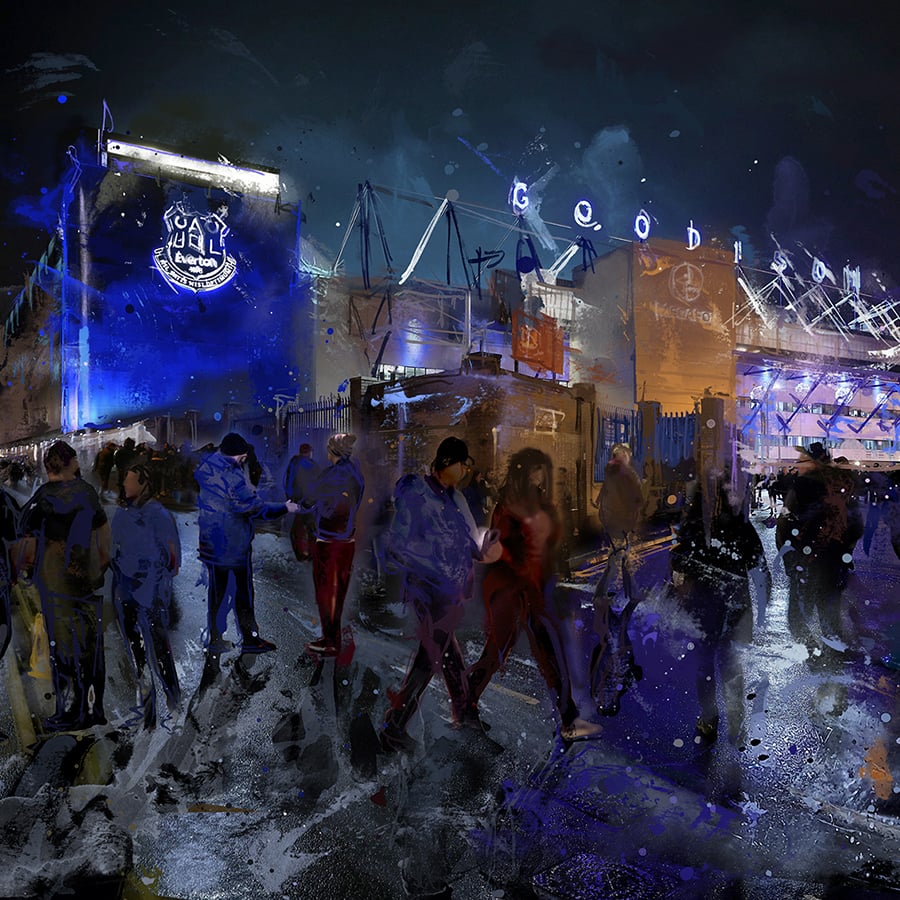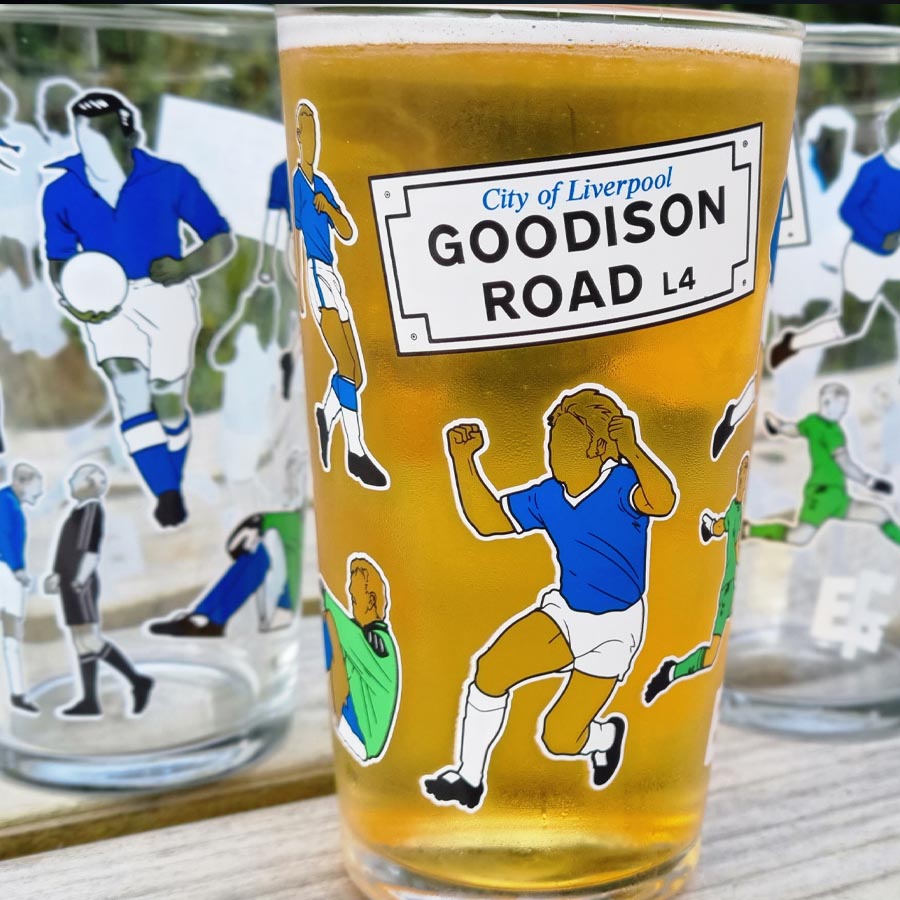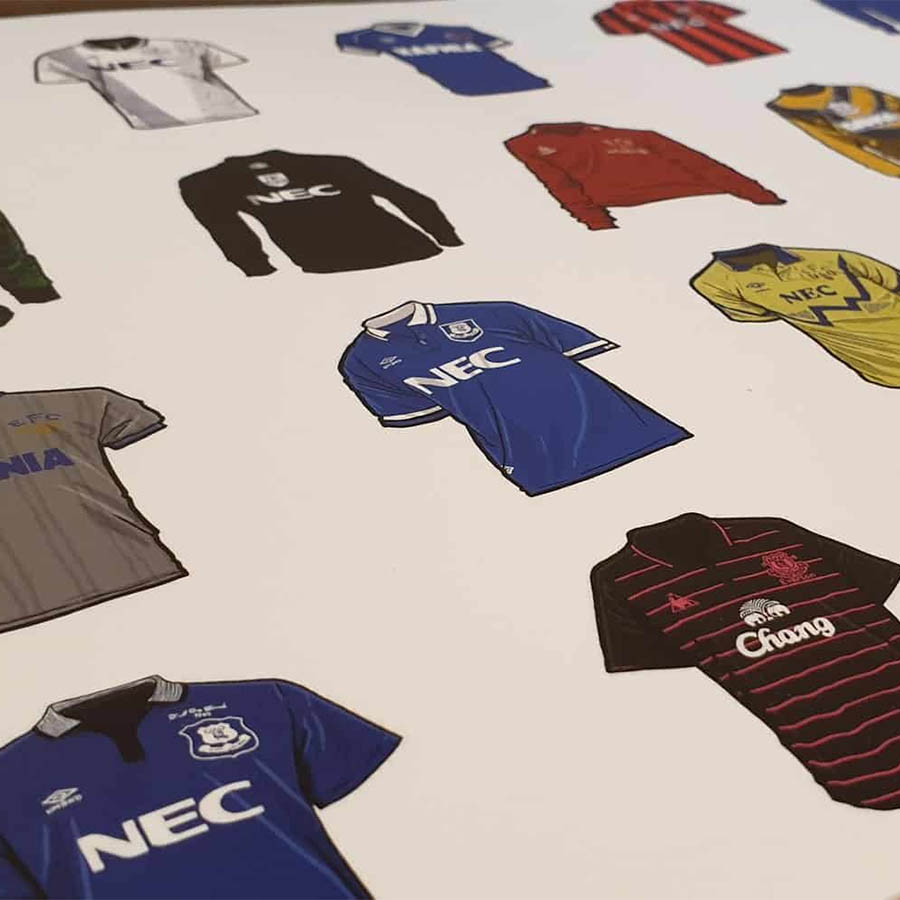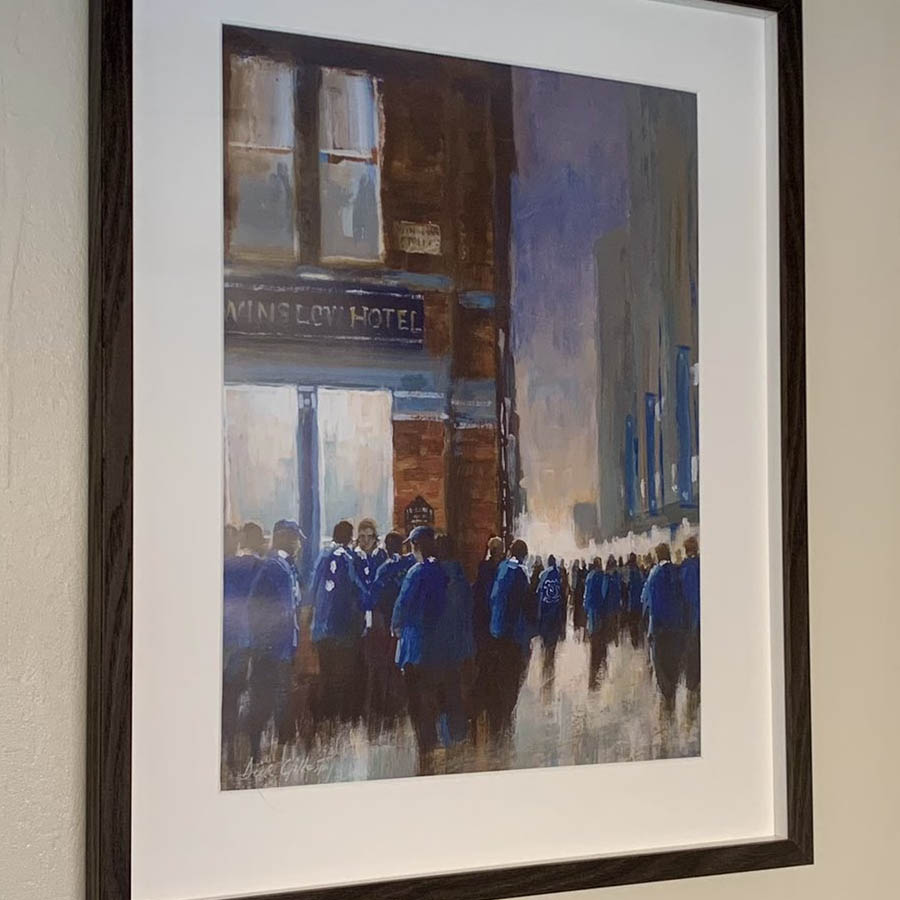summerisle
The rain, it raineth every day
Well this is music to the ears.
https://www.thetimes.co.uk/article/...7?shareToken=5e9d74bcc210218ff54b5a357c62a048
Marcel Brands: Money-wise it looks an impossible job but Everton can achieve success
Everton director of football Marcel Brands tells Paul Joyce how he can work his magic on Merseyside
Paul Joyce, Northern Football Correspondent
November 10 2018, 12:01am, The Times

Brands knows that he is facing his toughest task in football as he tries to elevate Everton to a place among the elite.
Marcel Brands remembers it as a road trip with a difference. Two hours from Alkmaar to Heerenveen, two hours back again, and in the passenger seat next to him for the entirety of the car journey was Louis van Gaal.
They had travelled together to watch AZ Alkmaar’s reserve team play towards the end of the 2007-08 season with the mood at the club anchored. Results had dipped, an 11th-place finish loomed, and Van Gaal was on the brink of quitting as coach sensing that belief in his methods had splintered.
Brands, now ensconced at Everton as their director of football, was not among the doubters. The season before they had finished third in the Eredivisie and, rather than rip up the blueprint, he favoured applying tweaks.
“Louis was thinking to cancel his contract,” Brands, who was sporting director of the Dutch club, says. “I was 100 per cent convinced in him, but I spoke directly to the players. They gave me an extra signal to say he is the right coach, at the right moment, at the right club and we want to go on with him.
“We spoke for four hours on that trip and, in the end, he said, ‘If you can make the right changes I will stay’. We only made a few, but the squad fitted together better.
“We lost the first two games of the season and the third game was against PSV [Eindhoven]. We won 1-0 and after that we had a glorious year.”
Victory triggered a 28-match unbeaten streak ensuring that a title charge became a procession for a team that included Mousa Dembélé, now of Tottenham Hotspur, and Sergio Romero, of Manchester United. Van Gaal would still leave, but in triumph for Bayern Munich.
The story serves to offer an insight into the character and philosophy of Brands. There was no kneejerk response to problems, but faith in a way of working.
When the 56-year-old suggests he is convinced that Everton can be successful in the Premier League, he is not just imparting the frothy soundbite that the club’s supporters crave. Alkmaar, having upset the natural order in the Netherlands, validate his point.
“If you look money-wise, then it looks an impossible job [in England],” Brands says. “But if you don’t believe that you can achieve things because they look difficult, then you should not work in sport. Because in sport you can do a lot with teamwork.
“I always think the best players will never be champions. The best team will be champion. Manchester City has great players but they have a fantastic coach who makes a fantastic team. It is not only about good players because, if you look at the top five, top six then they all have good players.
“If we can do our job in the right way, then I am convinced we can be successful.”
What constitutes success for Everton is different to City, but behind the scenes a reboot is taking place. Brands’ initial work on arriving from PSV Eindhoven in May focused on trimming back a bloated squad before identifying the signings which would dovetail with the manager Marco Silva’s front-foot approach and push Everton towards the top six.
The idea is to create a platform for further inroads into the elite in accordance with the owner Farhad Moshiri’s ambition. Tomorrow’s trip to Chelsea, who considered Brands as a replacement following the departure of the sporting director Michael Emenalo last year, serves as another gauge of progress.
For someone with such a glittering CV — Brands left PSV having earned the moniker of “the architect” after three titles in his eight years overseeing football operations — he insists upon sharing around the success he has enjoyed. Here lies a contrast with his predecessor, Steve Walsh, who was always keen to highlight his role in Leicester City’s remarkable Premier League triumph in 2016 but who left Everton in May having overseen a spend of £200 million that left an imbalanced group behind.
It feels like Brands is a better fit as he pushes for an inclusive approach at all levels, while exuding quiet authority. Together with Silva, he decided that every Everton player would take part in the recent community day at the training ground. The sight of two new signings, Yerry Mina and André Gomes, immersing themselves in a session with local youngsters was heartwarming.
“It is probably a lifetime experience for the people who were here and for the players it is only to give their appearance and behaviour,” Brands says. “That is priceless.”
Close relations have been forged with the chairman Bill Kenwright, whose own transfer acumen has helped the new man, Dave Harrison, director of football operations, and the CEO Denise Barrett-Baxendale. But the influence of Brands — affectionately christened “Indy” in the Everton boardroom for his passing resemblance to Harrison Ford, star of the Indiana Jones films — permeates all levels.
Recent weeks have been spent attending matches from under-14s upwards to understand the talent coming through and which pathways to the first team need to be kept open. Brands’s understanding of youth development is made all the more important by Everton’s two-year academy ban, imposed this week, for illegal approaches to players.
At Alkmaar, Brands recruited former players to his scouting set-up [one of them, Max Huiberts, is now the club’s sporting director]. It could be a route he considers at Everton as he overhauls the system, but what is certain is that the go-to-game-write-report routine is redundant as he seeks to steal a march on rivals in the pursuit of talent.
“What I want is commitment. It is not only a job. I have to feel it is their passion,” explains Brands, whose contacts in South America and across Europe is an area ripe for Everton to exploit. “The demands I ask of the scouts are much higher than they were in the past because I am used to working like that.
“It is not only ‘go to a game, watch a game, bring a report’. That is what happens in a lot of clubs but, if I ask you to go to a game, bring a report and you don’t hear anything about it, then how do I keep you motivated?
“The way I worked in the last years, the scouts were very involved and so if we got success then they were part of the success also. What do they think about games? What do they think about our squad? How can we improve?
“In PSV, it is more common to be champion, so one of the main goals was to get more youth in their first-team squad. Last year, we managed to be champion with 11 players aged 24 [or under] coming from our academy.
“That was also something all the people who work behind the scenes could be proud of.”
Brands’s personal investment in Everton clearly goes beyond the parameters by which his work is outwardly measured. His first transfer window in England scratched the surface of what is needed, many of the recruits arriving late, and proved eye-opening in other ways.
“Every amount I was used to working with there is now an extra zero,” Brands said. “It is a different country, a lot of agents, I think too many, but you know when there is money there are a lot of people.
“I always say I prefer to have the right player a day later than the wrong player a day earlier. But I want to do it perfect and it was not perfect yet. That is a goal you must have.
“You see now the team is growing and you see the work of Marco. He is a modern coach, he works hard every day. The players see, and feel, there is improvement and that is always the best motivation.
“The last two years were a little bit unstable. It is important to get more stability and then you can change some structures, bring in some ideas and build something. If you want to take care of the youth academy, for example, it takes time. That is not a result you get next week. I am very happy but I always say that when the people in the club are proud, I did my job well.”
https://www.thetimes.co.uk/article/...7?shareToken=5e9d74bcc210218ff54b5a357c62a048
Marcel Brands: Money-wise it looks an impossible job but Everton can achieve success
Everton director of football Marcel Brands tells Paul Joyce how he can work his magic on Merseyside
Paul Joyce, Northern Football Correspondent
November 10 2018, 12:01am, The Times

Brands knows that he is facing his toughest task in football as he tries to elevate Everton to a place among the elite.
Marcel Brands remembers it as a road trip with a difference. Two hours from Alkmaar to Heerenveen, two hours back again, and in the passenger seat next to him for the entirety of the car journey was Louis van Gaal.
They had travelled together to watch AZ Alkmaar’s reserve team play towards the end of the 2007-08 season with the mood at the club anchored. Results had dipped, an 11th-place finish loomed, and Van Gaal was on the brink of quitting as coach sensing that belief in his methods had splintered.
Brands, now ensconced at Everton as their director of football, was not among the doubters. The season before they had finished third in the Eredivisie and, rather than rip up the blueprint, he favoured applying tweaks.
“Louis was thinking to cancel his contract,” Brands, who was sporting director of the Dutch club, says. “I was 100 per cent convinced in him, but I spoke directly to the players. They gave me an extra signal to say he is the right coach, at the right moment, at the right club and we want to go on with him.
“We spoke for four hours on that trip and, in the end, he said, ‘If you can make the right changes I will stay’. We only made a few, but the squad fitted together better.
“We lost the first two games of the season and the third game was against PSV [Eindhoven]. We won 1-0 and after that we had a glorious year.”
Victory triggered a 28-match unbeaten streak ensuring that a title charge became a procession for a team that included Mousa Dembélé, now of Tottenham Hotspur, and Sergio Romero, of Manchester United. Van Gaal would still leave, but in triumph for Bayern Munich.
The story serves to offer an insight into the character and philosophy of Brands. There was no kneejerk response to problems, but faith in a way of working.
When the 56-year-old suggests he is convinced that Everton can be successful in the Premier League, he is not just imparting the frothy soundbite that the club’s supporters crave. Alkmaar, having upset the natural order in the Netherlands, validate his point.
“If you look money-wise, then it looks an impossible job [in England],” Brands says. “But if you don’t believe that you can achieve things because they look difficult, then you should not work in sport. Because in sport you can do a lot with teamwork.
“I always think the best players will never be champions. The best team will be champion. Manchester City has great players but they have a fantastic coach who makes a fantastic team. It is not only about good players because, if you look at the top five, top six then they all have good players.
“If we can do our job in the right way, then I am convinced we can be successful.”
What constitutes success for Everton is different to City, but behind the scenes a reboot is taking place. Brands’ initial work on arriving from PSV Eindhoven in May focused on trimming back a bloated squad before identifying the signings which would dovetail with the manager Marco Silva’s front-foot approach and push Everton towards the top six.
The idea is to create a platform for further inroads into the elite in accordance with the owner Farhad Moshiri’s ambition. Tomorrow’s trip to Chelsea, who considered Brands as a replacement following the departure of the sporting director Michael Emenalo last year, serves as another gauge of progress.
For someone with such a glittering CV — Brands left PSV having earned the moniker of “the architect” after three titles in his eight years overseeing football operations — he insists upon sharing around the success he has enjoyed. Here lies a contrast with his predecessor, Steve Walsh, who was always keen to highlight his role in Leicester City’s remarkable Premier League triumph in 2016 but who left Everton in May having overseen a spend of £200 million that left an imbalanced group behind.
It feels like Brands is a better fit as he pushes for an inclusive approach at all levels, while exuding quiet authority. Together with Silva, he decided that every Everton player would take part in the recent community day at the training ground. The sight of two new signings, Yerry Mina and André Gomes, immersing themselves in a session with local youngsters was heartwarming.
“It is probably a lifetime experience for the people who were here and for the players it is only to give their appearance and behaviour,” Brands says. “That is priceless.”
Close relations have been forged with the chairman Bill Kenwright, whose own transfer acumen has helped the new man, Dave Harrison, director of football operations, and the CEO Denise Barrett-Baxendale. But the influence of Brands — affectionately christened “Indy” in the Everton boardroom for his passing resemblance to Harrison Ford, star of the Indiana Jones films — permeates all levels.
Recent weeks have been spent attending matches from under-14s upwards to understand the talent coming through and which pathways to the first team need to be kept open. Brands’s understanding of youth development is made all the more important by Everton’s two-year academy ban, imposed this week, for illegal approaches to players.
At Alkmaar, Brands recruited former players to his scouting set-up [one of them, Max Huiberts, is now the club’s sporting director]. It could be a route he considers at Everton as he overhauls the system, but what is certain is that the go-to-game-write-report routine is redundant as he seeks to steal a march on rivals in the pursuit of talent.
“What I want is commitment. It is not only a job. I have to feel it is their passion,” explains Brands, whose contacts in South America and across Europe is an area ripe for Everton to exploit. “The demands I ask of the scouts are much higher than they were in the past because I am used to working like that.
“It is not only ‘go to a game, watch a game, bring a report’. That is what happens in a lot of clubs but, if I ask you to go to a game, bring a report and you don’t hear anything about it, then how do I keep you motivated?
“The way I worked in the last years, the scouts were very involved and so if we got success then they were part of the success also. What do they think about games? What do they think about our squad? How can we improve?
“In PSV, it is more common to be champion, so one of the main goals was to get more youth in their first-team squad. Last year, we managed to be champion with 11 players aged 24 [or under] coming from our academy.
“That was also something all the people who work behind the scenes could be proud of.”
Brands’s personal investment in Everton clearly goes beyond the parameters by which his work is outwardly measured. His first transfer window in England scratched the surface of what is needed, many of the recruits arriving late, and proved eye-opening in other ways.
“Every amount I was used to working with there is now an extra zero,” Brands said. “It is a different country, a lot of agents, I think too many, but you know when there is money there are a lot of people.
“I always say I prefer to have the right player a day later than the wrong player a day earlier. But I want to do it perfect and it was not perfect yet. That is a goal you must have.
“You see now the team is growing and you see the work of Marco. He is a modern coach, he works hard every day. The players see, and feel, there is improvement and that is always the best motivation.
“The last two years were a little bit unstable. It is important to get more stability and then you can change some structures, bring in some ideas and build something. If you want to take care of the youth academy, for example, it takes time. That is not a result you get next week. I am very happy but I always say that when the people in the club are proud, I did my job well.”

